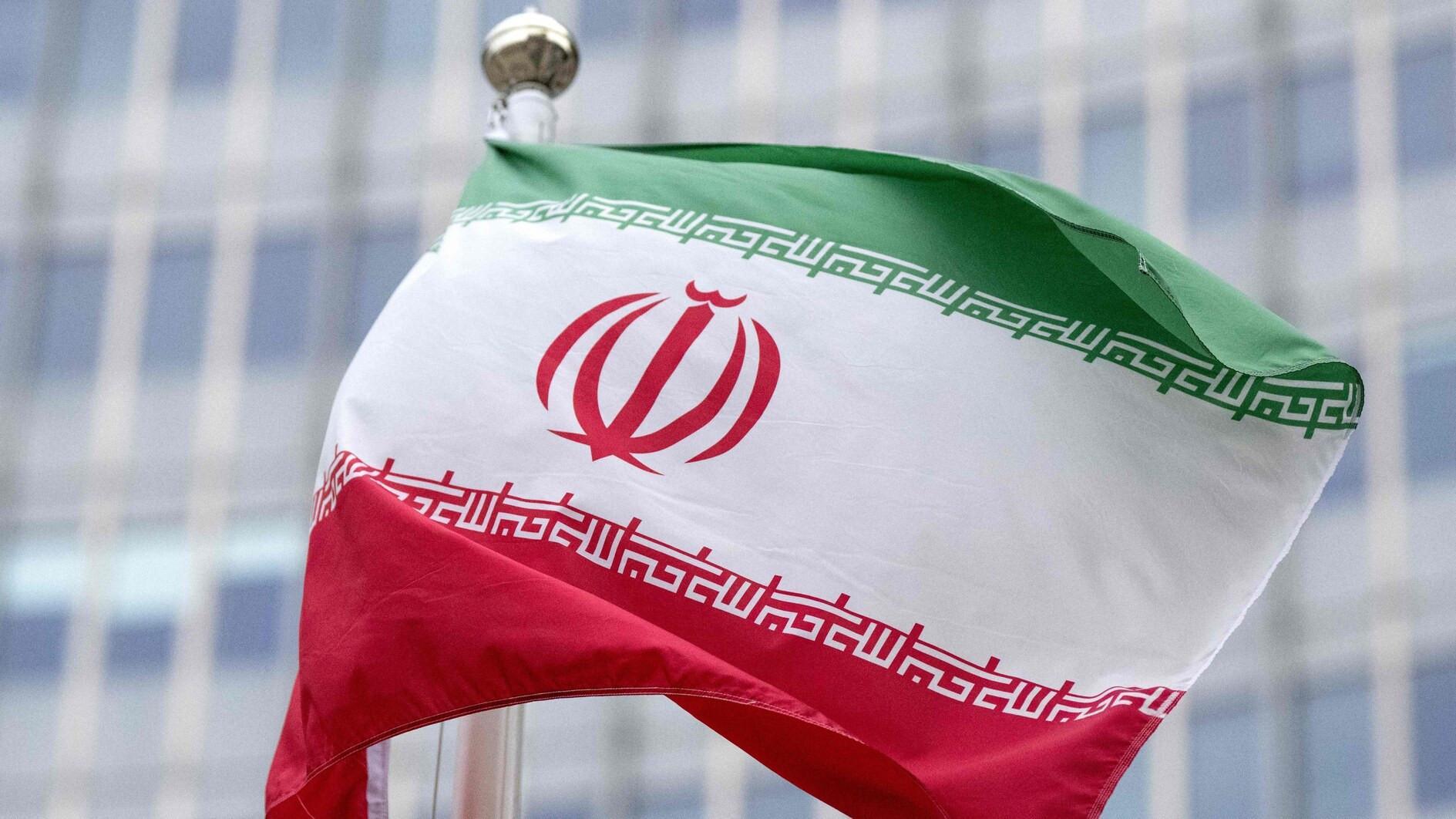
The flag of Iran flutters in the wind outside of the IAEA headquarters during the International Atomic Energy Agency IAEA's Board of Governors meeting at the agency's headquarters in Vienna, Austria, on Nov. 20, 2024.
The U.N. nuclear watchdog's board of governors passed a resolution chiding Iran's poor cooperation with the agency after hours of heated exchanges, diplomats told AFP late on Thursday—a move Tehran called "politically motivated."
The censure motion, brought by Britain, France, Germany, and the United States at the International Atomic Energy Agency's 35-nation board, follows a similar one in June.
But it comes as tensions run high over Iran's atomic program, with critics fearing that Tehran is attempting to develop a nuclear weapon—a claim the Islamic Republic has repeatedly denied.
The resolution—which China, Russia, and Burkina Faso voted against—was carried by 19 votes in favor, with 12 abstentions and Venezuela not participating, two diplomats told AFP.
Ahead of the vote on Thursday night, the United States and its European allies sought to rally support for their resolution by denouncing Iran.
In its national statement to the board, Washington said that Tehran's nuclear activities are "deeply troubling."
London, Paris, and Berlin, in a joint statement, drew attention to the "threat" Iran's nuclear program poses "to international security," stressing that it now had enough highly enriched uranium for four nuclear weapons.
In a first reaction after the vote, Iran's ambassador to the IAEA, Mohsen Naziri Asl, told AFP that the resolution was "politically motivated," citing its "low support" compared to previous censures.
Differences laid bare
The confidential resolution seen by AFP states it is "essential and urgent" for Iran to "act to fulfill its legal obligations."
The text also calls on Tehran to provide "technically credible explanations" for the presence of uranium particles found at two undeclared locations in Iran.
Moreover, Western powers are asking for a "comprehensive report" to be issued by the IAEA on Iran's nuclear efforts "at the latest" by spring 2025.
Since 2021, Tehran has significantly decreased its cooperation with the agency by deactivating surveillance devices to monitor the nuclear program and barring U.N. inspectors.
At the same time, Iran has rapidly ramped up its nuclear activities, including by increasing its stockpiles of enriched uranium.
That has heightened fears that Tehran might be seeking to develop a nuclear weapon, which it denies.
The resolution comes just as IAEA head Rafael Grossi returned from a trip to Tehran last week, where he appeared to have made headway.
During the visit, Iran agreed to an IAEA demand to cap its sensitive stock of near weapons-grade uranium enriched to up to 60 percent purity.
"This is a concrete step in the right direction," Grossi told reporters Wednesday, saying it was "the first time" Iran had made such a commitment since it started breaking away from its obligations under the nuclear deal.
The landmark 2015 deal—which curbed Iran's nuclear program in exchange for sanctions relief—fell apart three years later after the unilateral withdrawal by the United States under then-president Donald Trump.
In retaliation, Tehran began gradually rolling back some of its commitments by increasing its uranium stockpiles and enriching beyond the 3.67 percent purity—enough for nuclear power stations—permitted under the deal.
Potential to 'harm efforts'
Although symbolic in nature at this stage, the censure motion is designed to raise diplomatic pressure on Iran.
Iran's Foreign Minister Abbas Araghchi said Thursday the censure "will disrupt" interactions with the agency but stressed that Tehran would remain keen to cooperate.
Earlier, Araghchi had warned of a "proportionate" response by Iran if the board passed the resolution.
According to Heloise Fayet, a researcher at the French Institute of International Relations, the resolution has the potential to "harm Rafael Grossi's efforts."
On Wednesday, Grossi said he could "not exclude" that Iran's commitment to cap enrichment might falter "as a result of further developments."
Foreign policy expert Rahman Ghahremanpour said Tehran might retaliate to the new censure by "increasing the enrichment levels."
But he does not expect any drastic "strategic measures," as Iran does not want to "aggravate tensions" before Trump returns to the White House.